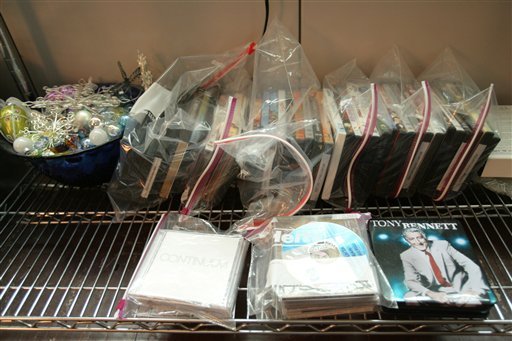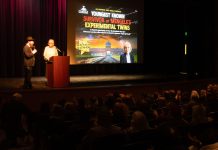Ten hours a day, every day, Elizabeth Feudale-Bowes confines
herself to a galvanized-steel-and-porcelain shed outside her house.
Inside are a toilet, a metal cabinet, a box spring with the metal
coils exposed, and a pile of organic cotton blankets. Aluminum foil
covers the window.
Ten hours a day, every day, Elizabeth Feudale-Bowes confines herself to a galvanized-steel-and-porcelain shed outside her house. Inside are a toilet, a metal cabinet, a box spring with the metal coils exposed, and a pile of organic cotton blankets. Aluminum foil covers the window.
The place is as austere as a prison cell – but it’s also her sanctuary from an outside world that she says makes her violently ill.
She and her husband call the structure “the bubble.”
This bubble, though, may be about to burst: A judge has ordered it taken down by the end of the month.
Some of the couple’s neighbors in suburban South Whitehall Township complained that the 160-square-foot building is unstable and so unsightly it could drag down their property values. The couple also hooked up electrical, water and sewer service without securing permits.
“For the wife’s medical problems, there is sympathy. For the owner’s defiance of the township’s lawful directives, there is no excuse,” Judge Carol McGinley ruled earlier this month.
Feudale-Bowes, 52, says she was diagnosed several years ago with “environmental illness,” described as extreme sensitivity to everyday substances.
Some doctors question whether environmental illness is a genuine physical disorder and suggest it is psychological. Feudale-Bowles says she was diagnosed by Dr. William Rea of Texas, who has been accused by the Texas Medical Board of promoting “pseudoscience.” He vigorously disputes the charge and continues to see patients.
Feudale-Bowes says fabric softener, nail polish, perfume, new sneakers, upholstery and many other items can make her body go haywire. She says she has suffered from a range of chronic ailments, including migraines, joint pain, bladder inflammation, seizures and temporary paralysis. Her insides, she says, have sometimes felt like “fire with ground glass in it.”
A couple of years ago, the couple settled in South Whitehall, moving into a Lustron house, a 1940s-era prefabricated home made of porcelain-enameled steel that serves as their main residence. They paid an additional $10,500 for the bubble.
The zoning board has recommended the couple explore other options, such as an addition to their house.
“We’re just asking them to comply with the same safety codes that every other person in the community has to comply with,” said Township Manager Jerry Gasda.
The couple are threatening to sue the township under the federal Americans with Disabilities Act.
“My wife’s not a lawn mower, and I didn’t put up an illegal shed just to mess with the township,” said Craig Bowes, 52, who owns a company that cleans supermarket floors.
Some neighbors question whether her ailment is genuine. But they and others say the main issue is the couple’s disregard of the zoning rules.
Thomas Kelly, 53, who lives across the street, said that while he feels sorry for Feudale-Bowes, her husband “just did whatever he pleased.”
“We don’t live like that,” he said. “We live in a society governed by laws.”
But Feudale-Bowes said: “If I don’t live like this, my pain level is so severe that I can’t function, I can’t live, I can’t survive. It’s excruciating.”














